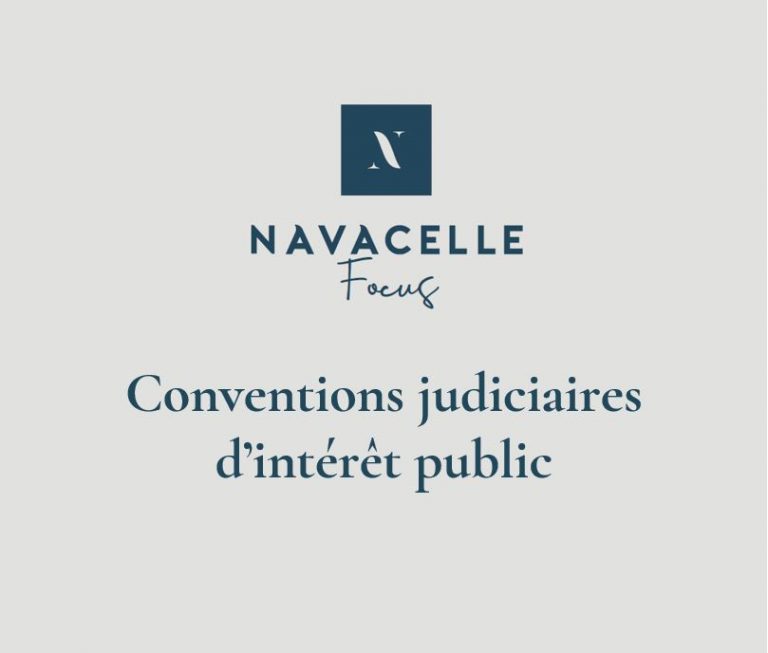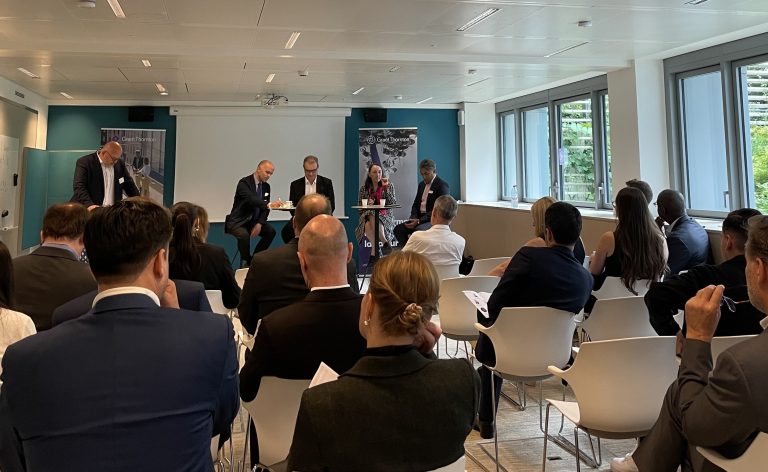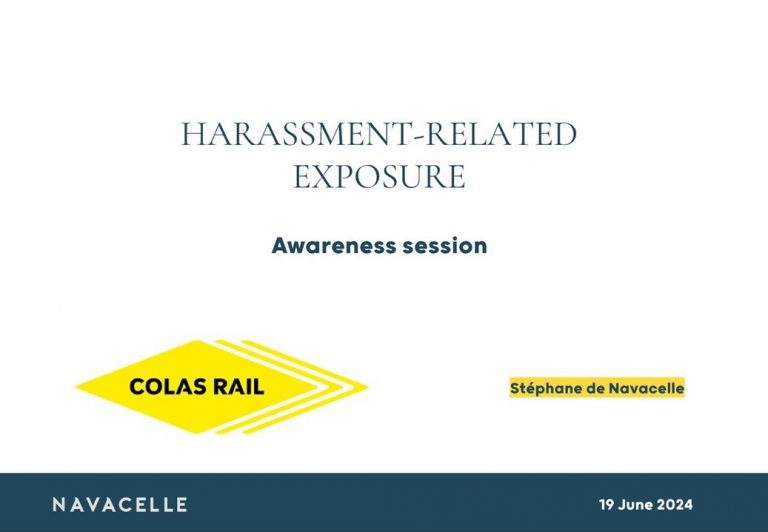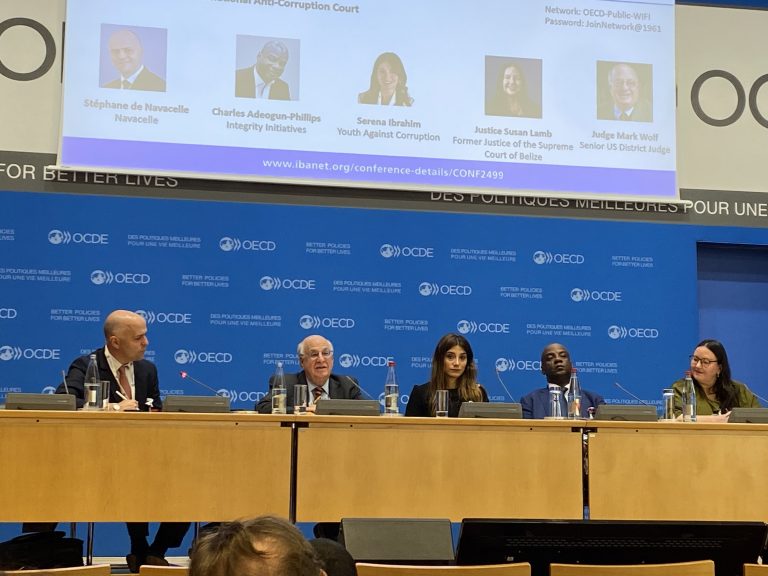I. Corporate criminal liability under French law
Corporate criminal liability
It should be noted that the criminal liability of the legal person and that of the natural person are independent. Thus, an acquittal pronounced in favor of the representatives of the legal person does not necessarily exclude the liability of the latter, and the legal person may thus be the only one convicted[1].
Legal persons are criminally liable for offenses committed on their behalf by their bodies or representatives[2].
A body of a legal person is any entity which can take decisions on behalf of the legal person, whether its existence is (i) de jure, being provided for by law or by the articles of association, as is the case for a board of directors, or (ii) de facto, results from the practices in place within the legal entity[3].
The individual representatives are individuals such the directors, CEOs, and chairman, who are vested, by the law or the bylaws, with the power to manage and control the legal person.
Moreover de facto directors or managers and individuals vested with delegation of powers (including employees) may be viewed as representatives of the company.[4] Recently, case law has confirmed the possibility for an employee, who does not have a written delegation of powers, to be considered as a representative of the legal entity if he or she has a de facto delegation of powers, implying a status and powers to make decisions for the legal entity[5].
The offense is deemed to have been committed on behalf of the legal person when it is committed in the exercise of activities whose purpose is to ensure the organization, operation, or objectives of the legal person[6], even if the legal person has no interest therein, or has not benefited there from the offense[7].
For some time, French case law was not clear on the issue of whether the courts must precisely identity who committed the offense on behalf of the company.
First, the rule was that judges had to unambiguously identify the natural person who committed the offense in order to hold the legal entity liable[8]. Then, judges were exempted from precisely identifying the physical person who committed the offense if the circumstances made it apparent that the offense could only have been committed or condoned by the bodies or representatives of the legal person[9].
Finally, the Supreme Court reverted to its earlier case law and the judges must therefore specify how the offenses held against the legal person were committed on its behalf, by one of its bodies or representatives[10].
There has also been an important reversal of case law concerning the criminal liability of legal persons after a merger operation. Until very recently, the Supreme Court had always refused to convict the absorbing company for offenses committed by the absorbed company before the merger took place[11].
However, the Court of Justice of the European Union held that there could be a transfer of criminal liability from the absorbed company to the absorbing company, in a ruling of March 5, 2015[12].
The French Supreme Court finally reversed its case law and held that that an absorbing company can, under certain conditions, be convicted for offenses committed by the absorbed company before the merger[13].
Sentencing of corporations
Since it is impossible for a company to serve a prison sentence, fines are the most common sentence handed down by the courts[14].
The maximum fine applicable to legal persons is five times the fine provided for natural persons for the same offense[15]. Where there is an offense for which no provision is made for a fine to be paid by natural persons, the fine incurred by legal persons is 1 million euros.
Other sanctions are also provided for in the French Penal Code, such as the dissolution of the company[16], the prohibition, permanently or for a period of five years or more, from directly or indirectly exercising one or more professional or social activities[17], or the placement for a period of up to five years under judicial supervision[18].
In addition to the fine, judges may also impose accessory penalties (such as ban on managing a commercial company for natural persons). The pronouncement of an accessory sentence is not mandatory and remains at the discretion of the judge.
II. Negotiated justice
The French Guilty Plea
The French Guilty Plea (“CRPC”) was introduced into French law in 2004[19]. It is a simplified and fast procedure[20]. It can be applied for all misdemeanors and for contraventions related to a misdemeanor, except[21]:
- Offenses committed by a minor[22]
- Press offenses[23]
- Involuntary manslaughter[24]
- Political offenses[25]
- Voluntary attacks on the integrity of persons if the sentence if more than 5 years of imprisonment[26]
The CRPC procedure is possible for both natural and legal persons[27].
The prosecutor may decide to initiate a CRPC procedure at his own initiative, at the request of the offender or his lawyer, or by referral by the investigating judge to the prosecutor for this purpose[28].
This procedure is only possible if the offender admits his guilt[29]. The offender must be assisted by a lawyer during each phase of the procedure[30]. First the defendant will have to admit his guilt before the Prosecutor. Then the Prosecutor will propose a sentence which the offender may accepts or refuse. If he accepts, the case will be referred to the court for hearing during which the presiding judge of the criminal court will homologate the guilty plea[31]. The judge may also refuse to homologate the guilty plea[32]. If he does so, the case may go to trial or be referred to an investigating judge for an investigation[33].
The sentence proposed by the prosecutor cannot exceed three year of imprisonment, nor half of the jail time originally incurred. As for the fine, it cannot exceed the amount of the fine originally incurred[34].
The Judicial Public Interest Agreement
In 2016[35], a new procedural mechanism has been introduced in French law, allowing the prosecutor to conclude a Judicial Public Interest Agreement (“CJIP”) which permits the disposal of claims of corruption, influence peddling, tax fraud, laundering of the proceeds such offenses, and environmental crime[36]. This new procedure is inspired from the Deferred Prosecution Agreement which exist in the United States but does not apply to natural persons.
The major interest for a legal person agreeing to such a proceeding is that when it is successful, prosecution will be stopped. For this to happen, the legal person must execute the obligations to which it has committed itself in the agreement. These obligations, which may be alternative or cumulative, may consist in[37]:
- the payment of a public interest fine, the amount of which cannot exceed 30 % of the average annual turnover
- the implementation, under the monitoring of the French Anti-Corruption Agency for a maximum period of 3 years of an anti-corruption compliance program
- repairing the victim’s damage
Once the natural person agrees to the CJIP, the agreement must be validated by a judge during a public hearing[38]. The agreement and the judge’s decision are then made public[39].
CJIP are particularly useful for the rapid resolution of large-scale cases. For a recent example, on 31 January 2020, the Paris criminal court validated a CJIP concluded between the National Financial Prosecutor’s Office (“Parquet national financier” or “PNF”) and Airbus S.E.. The National Financial Prosecutor’s Office imposed a fine of 2,8 billion euros on Airbus. According to the National Financial Prosecutor’s Office, this CJIP is significant for France because it has raised it “to the level of the leading judicial authorities in this area, alongside the United States (Department of Justice / DoJ) and the United Kingdom (Serious Fraud Office / SFO), insofar as it was the responsibility of the PNF to coordinate the French CJIPP with the two Deferred Prosecution Agreement in this case. The total amount of the fine imposed on Airbus by the three judicial authorities reached the sum of 3,6 billion euros”[40].
III. Cross border financial crimes enforcement impact on compliance
The National Financial Prosecutor’s Office, a Prosecutor’s Office specialized in complex and serious financial offenses
France’s enforcement landscape has been considerably reshaped by the creation of the PNF in 2014[41].
The PNF was created in response to several financial scandals that have shaken France’s political scene in recent years, such as “the Cahuzac case”. Indeed, in 2012, Jérôme Cahuzac, at that time Minister Delegate to the Minister of the Economy and Finance, was accused of having held an undeclared bank account at the Union des Banques Suisses (UBS) in Geneva until early 2010, before moving his assets to Singapore[42].
The PNF is composed of eighteen prosecutors[43] who investigate complex cases of offenses against public finance or against probity such as bribery, money laundering, offenses against the functioning of financial markets, and antitrust/cartel offenses[44].
The PNF is the French counterpart of the United Kingdom’s Serious Fraud Office (“SFO”) or of the fraud section of the US Department of Justice. Prosecutors of each one of these specialized prosecution services are in contact with their foreign colleagues in order to ensure international cooperation on large-scale cases.
The threat of extraterritorial sanctions
Numerous foreign laws, such as the Foreign Corrupt Practices Act (“FCPA”)[45], the U.S. Embargo Act[46] or the UK Bribery Act[47], allow for the prosecution by foreign authorities of conducts deemed reprehensible, even though they were committed in whole or in part outside the territory of the States that enacted the legislation. It is a matter of prosecuting acts of corruption of foreign public officials as well as violations of rules on embargoes or even acts of money laundering and financing of terrorism. For example, the FCPA is extraterritorial in scope in that it applies whenever the entity concerned is located in the United States, is listed on a U.S. stock exchange or even uses the dollar as its currency of exchange[48].
S. law allows for the use of negotiated justice, with the establishment of a deferred prosecution agreement (“DPA”). In exchange for an admission of guilt, the payment of an often substantial fine and the implementation of a monitoring program, the targeted entity can obtain from the authorities that they put an end to the proceedings by stopping the prosecution[49]. As a result, many French companies have agreed to DPAs with U.S. authorities (Total, Alstom or BNP Paribas for example)[50], even if very often, the conduct of which they were accused had taken place entirely outside the United States.
It is important to note that the amount of the fine proposed to the company will depend in part on the degree of its cooperation[51]. It is therefore in the company’s interest to cooperate actively to avoid trial and severe prison sentences for its executives. Finally, cooperation is also encouraged by the leniency that can be granted to those who provide information to the investigation[52].
In addition to the significant fine that may weaken a company in the long term, especially when it operates in a highly competitive sector, monitoring is also a crucial point in the pronouncement of the DPA, as it may make it possible to impose the recruitment of an independent third party to the company, in principle a lawyer, whose mission will be to supervise that the remedial measures, such as the upgrading of the company’s compliance procedures, are properly implemented. As part of this mission, the monitor will report to the foreign prosecution authorities. In the event of non-compliance, the foreign prosecution authorities may take action against the entity in question, including the initiation of prosecution.
The role of the monitors set up in the context of certain procedures has sometimes been criticized by some observers or protagonists who have had to deal with these cases, some going so far as to question the links that some of them may have had with the prosecution authorities and their true independence[53].
Some fear that this monitoring function is not sufficiently protected, so that monitor will have access to protected commercial information that it will subsequently have to report to the American government[54].
Thus, there is a risk that confidential information from French companies will be transferred to foreign government authorities in this context.
The most critical commentators of these extraterritorial procedures have described them as a form of instrumentalization of the U.S. justice system in the service of American firms[55], with some going so far as to assert that the procedures launched against Alstom[56] or even Alcatel were in fact intended to serve as leverage to allow their acquisition by their American competitors, as part of what they describe as “an American strategy of economic domination”[57].
Corporate compliance programs as tools to protect French companies from criminal prosecution
1. The new French Anti-corruption Agency
To preserve its sovereignty, France had to bring its legislation up to speed with these foreign laws, which it did in 2016 with the adoption of a new law (“Sapin II law”)[58], which also has an extraterritorial scope. It is really through this law that compliance entered the French landscape, making compliance programs mandatory in many companies.
The Sapin II law is a response to the American FCPA but also an attempt to regain control over law enforcement. For example, the parliamentary debates which led to this law were focused on the diplomatic interests of French authorities, because the French legal framework did not provide them with the necessary tools to prosecute international corruption cases, whereas foreign authorities were able to act effectively.
The Sapin II Law has notably introduced the French Anti-Corruption Agency (“Agence Française Anticorruption”, “AFA”). This administrative authority has similar investigating powers to those held by the financial and competition regulators. It can audit companies at any time and pronounce administrative sanctions.
The AFA has jurisdiction over the whole French territory and is placed under the supervision of the Minister of Justice and the Minister in charge of the budget. Its mission is to help the competent authorities and those who are confronted with them to prevent and detect acts of corruption, influence peddling, misappropriation of public funds and favoritism[59].
The AFA also draws up recommendations intended to help legal entities to prevent and detect acts of corruption, influence peddling, misappropriation of public funds and favoritism. For greater effectiveness, these recommendations are adapted to the size of the entities concerned and to the nature of the risks identified[60]. Indeed, the AFA has a specific training role for public and private entities. It proposes trainings and guidelines that help companies to know what to do and prevent them of committing infringements.
The AFA is different from the PNF because it audits companies’ compliance systems, where he PNF investigates potential infringements of the law.
2. Compliance programs are mandatory for large companies in France
The Sapin II law requires companies with at least five hundred employees or belonging to a group of companies whose parent company has it registered office in France and whose workforce includes at least five hundred employees, and whose turnover exceeds one hundred million euros, to set up a compliance system for the prevention and detection of corruption and breaches of probity[61].
The French Anti-Corruption Agency has the power, in the absence of a proper compliance program, to impose a fine of 200 000 euros to the directors and 1 million euros to the legal entity[62]. The AFA may also enjoin the legal entity to put in place a relevant and effective compliance program[63].
Corporate compliance programs therefore play an important role in protecting companies from criminal prosecution by French or foreign authorities, and from potential sanctioning by the AFA.
Moreover, if the corporation is prosecuted for or convicted of the crime perpetrated by its agent, having such a compliance program can lead to a sentence downgrade when the prosecution is initiated by foreign authorities (e.g., United States Sentencing Guidelines).
Finally, when authorities, whether French or foreign, are considering the implementation of a negotiated justice agreement (DPA or CJIP), the existence of an effective compliance program (as well as other factors such as the company’s cooperation or track record) may be taken into account.
3. The content of the compliance program is regulated by law
The compliance program instituted by the Sapin II Law includes several mandatory steps.
First, companies required to set up such a program must draw up and release a code of conduct[64]. Such document is an internal document in which the company communicates its main commitments to conduct its activities in compliance with the law and ethical principles. This code contains a section on fight against corruption, with the appropriate measures to prevent, detect and dissuade corrupt practices or influence peddling. The main aim of the code of conduct is to give tools to employees. In fact, if employees do not have any procedure, any guidelines to rely on, the employer cannot expect them to know the rules, and therefore to be able to comply with them.
Secondly, companies must put in place a whistleblowing procedure[65]. According to the Sapin II law[66], a whistleblower is a natural person who discloses or reports, in a disinterested manner and in good faith, a violation of the law. This definition will soon evolve in France, as a new law is being discussed to transpose a European directive on the subject[67].
Then, a compliance program should include a risk mapping[68]. The purpose of risk mapping is to identify, analyze and prioritize the risks of exposure of the company to corruption and influence peddling. It must take into account the nature of the activities, sectors, and geographical areas in which the company operates. The company’s anti-corruption procedures must be adapted to this risk mapping.
Next, the company must have in place a procedure for the prior assessment of the context of a transaction with third parties (customers, first-tier suppliers and intermediaries) with which the company is considering entering into a contract[69]. This allows for an in-depth knowledge of the potential partner (e.g., shareholders, management, reputation) to avoid exposure to legal risks (corruption, forced labor, ESG concern, etc.). It is a review of all the business partners of the corporation.
The company must also establish internal or external accounting control procedures to ensure that books, records and accounts are not used to conceal corruption or influence peddling[70]. These procedures are carried out as regularly as possible by the person responsible for them within the company.
The company’s commitment to a compliance program to prevent the risk of corruption and influence peddling must be reflected in the training of managers and employees on these issues[71]. The training provided must be continuous, pragmatic, and educational, as well as adapted to the exposure of employees to corruption risks.
The compliance program of the company must include a reminder of the company’s internal disciplinary measure. Sanctions must be provided for in the company’s internal rules[72].
Finally, the company must set up an internal control and evaluation system for the application of its compliance program[73], which defines the role and responsibilities within the company (e.g., compliance, internal control, internal audit…). The company must control and evaluate the adequacy and effectiveness of its procedures and adapt them if necessary. This internal evaluation must be periodic.











